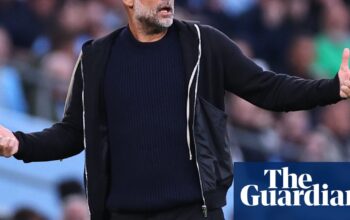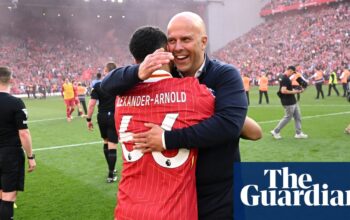Seven years ago Matt Singleton’s father, Brian, was diagnosed with Alzheimer’s disease, and one of the immediate consequences was that he stopped reading. “That was his main pastime when he wasn’t working, along with football,” says Matt. “Suddenly I was no longer able to buy him books for things like birthdays and Father’s Day, so I started to write them myself for fun.”
Matt publishes his books now, in association with the Alzheimer’s Society. They are called “cognitive books” as they are designed to help stimulate the mind of someone with dementia. He is a gerontologist, someone who specialises in understanding the processes of ageing. In choosing his material he has had to be selective, focusing on topics that can make connections with people whose memories have been attacked. That’s where the 1966 World Cup comes in.
“When we talked about his memories of the 1960s,” Matt says of his father, “my dad would always say 1966, the World Cup and the year he founded his business. But when we ask other people, it’s the same. The 1966 World Cup, the 60s, that’s something which comes up immediately because sport holds such a special place in memories.”
Singleton says he shares similar formative experiences to his father. “I can still remember 24 January 1998, my first trip to Highbury with my dad,” he says. “It was just astonishingly memorable. So for my dad and people like him, we hear it time and again, females and males, 1966 is a big event, what you call a cohort memory.”
For many people with Alzheimer’s, it is the memories forged long ago which are most enduring. “Memories are often likened to a bookshelf, or a big pile of books. The most recent ones are at the top and the early ones are at the bottom,” Singleton says. Neurodegenerative conditions shake that pile. “It’s sort of like an earthquake,” he says. “It starts to shake around carelessly and the ones at the top start to fall off. And then you’re just left with the ones at the bottom.”
Singleton’s book, entitled “Looking back at … the 1966 World Cup”, is designed to stimulate those memories and encourage the creation of more. It is illustrated, with each page both complete in itself and forming a part of a broader story. The text is in rhyme, the repetition of which is good for stimulating memory, and at the end there are exercises, simple question and answers that help to organise and further reinforce the information. There are also many natural breaks to provide for conversation.

“Any activity you can do together and keep people social is very beneficial for people with dementia,” says Singleton. “You can work with someone and help keep them social and we see better wellbeing outcomes for people who maintain, to use the scientific phrase, social function. So that’s incredibly important, as is reading as a whole, if people can do it. Anything to maintain your hobbies and keep doing the things you love.”
Singleton’s experience of writing these books has been intensely personal. While trying to produce work that could assist his father, he was also processing the loss of his best friend, who died last autumn. Both events have reinforced for him the importance of not just living in the moment but sharing those moments too. As a couplet repeated in the book says: “Time passes like a supernova. All those chances taken. Just when they think that it’s all over. Our hope can reawaken.”
after newsletter promotion
Singleton describes an Alzheimer’s diagnosis as a moment when “hope can end for many around the family because many people see what they are losing rather than what is still there”. His observation, however, has been that “in my experience with my dad, the final chorus I guess you’d call it, whilst we have seen parts, certain aspects of him go, that’s the fault of the disease, but the parts of my dad that are there still reflect this wonderful, wonderful man – and that hope is always there, that things could improve and that there are brighter days ahead”.
The poignant power of Singleton’s book, the resonance this single event has for his father and himself and the cohort who came of age in the 1960s, is only reinforced by the extent to which dementia affected the lives of the men who won the World Cup that July day at Wembley. “Looking back at … the 1966 World Cup” was conceived with input from the Football Association and Singleton is enthusiastic about their Supporting the Supporters scheme, which seeks to involve more dementia sufferers and their carers in the game.
The book has a foreword from Sir Geoff Hurst, the last living member of the England XI that started the 1966 final against West Germany. Winning the World Cup was something, Hurst says, that “I still find hard to believe happened to me”, and he digs back into his own memories to recall the Charlton brothers accurately predicting how their lives would be changed irrevocably from that moment.
“I’ve lost too many of those teammates, including dear Bobby and Jack, to this dreadful condition, dementia,” Hurst writes. “But I’m only too aware that there are moments of joy during someone’s dementia journey. It would be fantastic if this book brings several of those moments and invokes wonderful memories for many readers.”
Looking Back at … the 1966 World Cup is published by Cognitive Books on 10 June.
Source: theguardian.com


